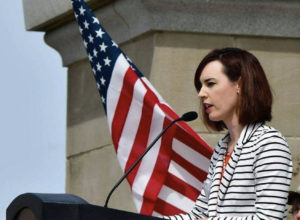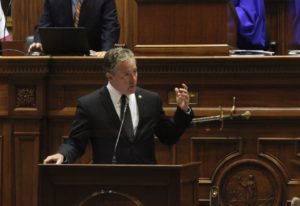Louisiana Senate Education Committee approves two education savings account bills
(The Center Square) – Two bills to create Education Savings Accounts students can use for educational expenses outside the public school system cleared the Louisiana Senate Education Committee this…

(The Center Square) – Two bills to create Education Savings Accounts students can use for educational expenses outside the public school system cleared the Louisiana Senate Education Committee this week.
Committee members approved House bills 33 and 194 without objections on Thursday to create ESAs with the average per-pupil state funding allotment for specific students that parents can use for educational expenses outside of the public school system.
HB 33, sponsored by Rep. Phillip DeVillier, R-Eunice, would offer ESAs to children of military families, those in foster care and students attending D- or F-rated schools that have been denied a transfer to higher-rated schools.
“House Bill 33 is about one thing: It’s about giving parents more choices to meet the needs of our future, giving them the best chance to succeed,” DeVillier said.
DeVillier cited the state’s poor educational rankings and argued “we’re not giving the best opportunities for certain students to succeed.”
Erin Bendily, vice president for policy and strategy at the Pelican Institute, noted that the ESAs are based only on the state’s portion of per-pupil funding and does not impact local or federal funding, which essentially translates into more money per student in the former schools of ESA recipients.
Michael Faulk, executive director of the Louisiana Association of School Superintendents, testified in opposition to HB 33, as well as HB 194.
“These programs limit the accessibility to economically disadvantaged families,” he said. “Under most proposals, the cost allocated for non-public education and services would be insufficient to completely fund education for a full academic year, which puts the responsibility on the parent to come up with the rest of the money that would be required wherever they chose to go.”
“For economically disadvantaged families, this would present a challenge, and therefore would prevent them from accessing any of these education savings accounts,” Faulk said.
He also alleged the ESAs limit access for students with special needs.
DeVillier disputed both of Faulk’s claims.
HB 194, sponsored by Rep. Rhonda Butler, R-Ville Platte, offered the same ESAs to students with disabilities such as deafness, blindness, or autism.
Butler, a mother of a disabled child, said the bill “is dear to my heart because I live this life every day.”
Butler read communications from a mother of a disabled student who struggled in the public school system, but later thrived when the child transitioned to homeschool for a more specialized education to illustrate how the legislation would benefit families.
“If any of us are economically disadvantaged it’s the parents of these children in every way of life, from hospitalization to schools,” she said.
The ESA bills are backed by the Louisiana Association of Business and Industry, the Pelican Institute, the American Federation for Children and numerous individuals who submitted cards in support.
The bills were opposed by the Louisiana Association of Educators and LASS. Louisiana Progress also opposed HB 194.
HB 33 cleared the House on April 20 with a vote of 75-26, while HB 194 gained approval in the lower chamber on May 4 with a vote of 90-2.
Both bills are now expected to head to the Senate Finance Committee.



